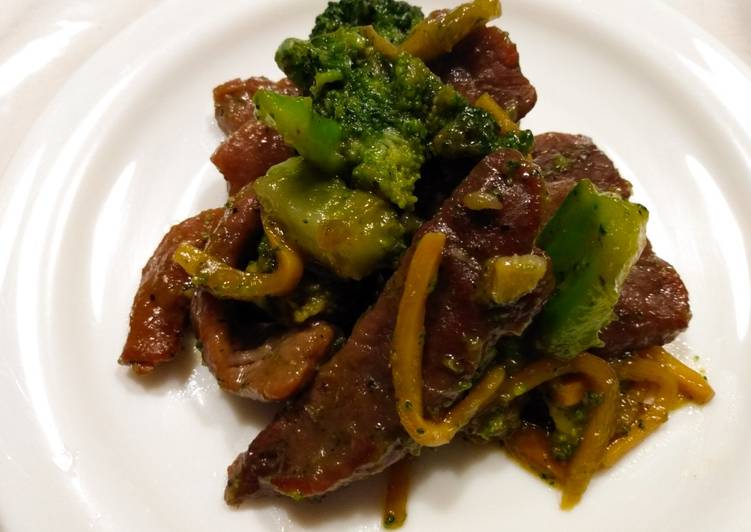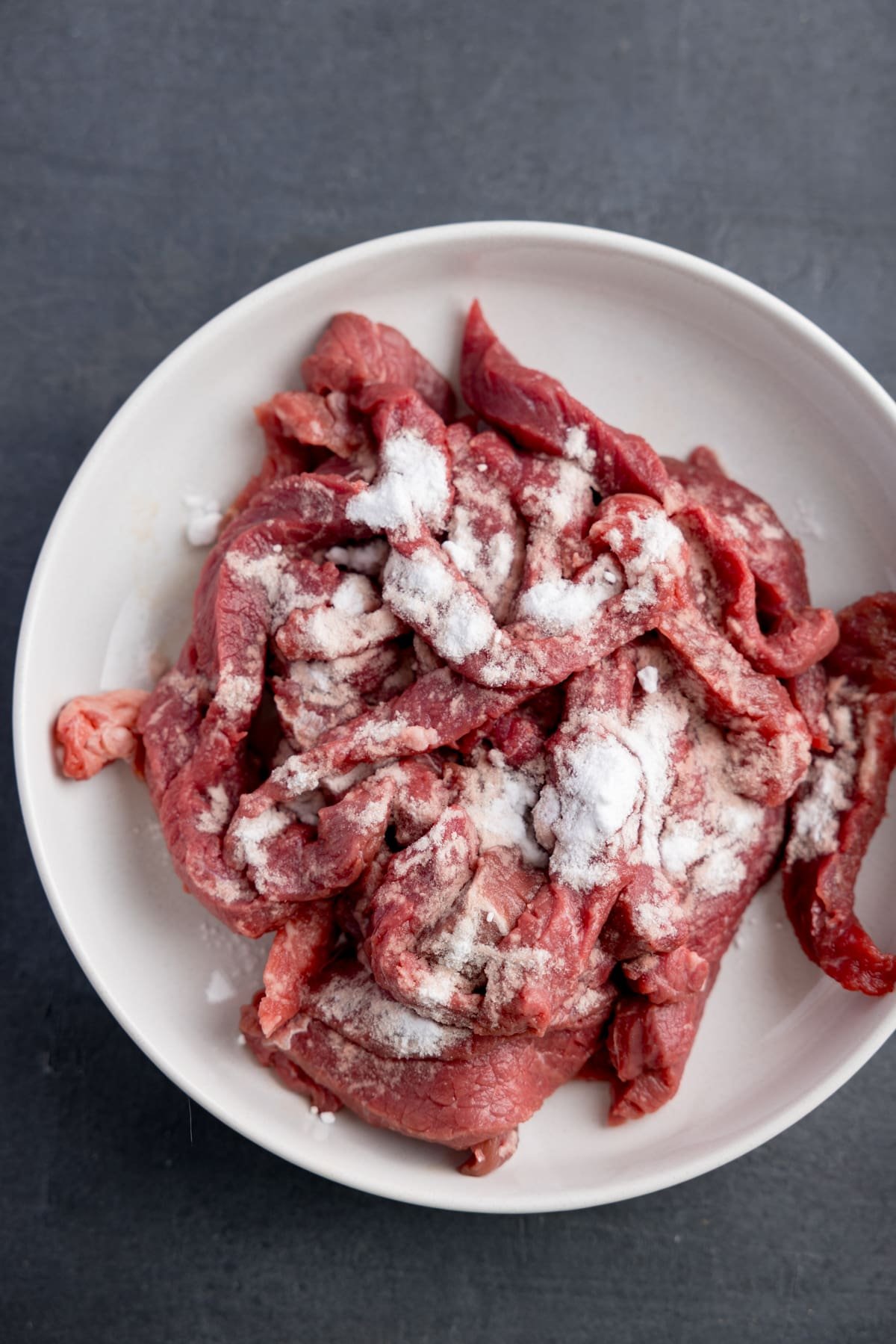What is “velvet” beef? This is a way to make cheaper, tougher cuts of beef more tender for stir fry recipes. I use bicarbonate of soda for this quick method. The beef is tender and ready to use in 30 minutes.
I love a nice, tender, marbled ribeye for a stir fry, but it’s not always possible or cost-effective (especially when you have to feed a few hungry teens as well).
You can use rump, a cheaper cut of beef or steak, in your stir-fry. Here’s how to make it soft and tender.
The method is known as velveting or tenderising. There are a few different ways to velvetise steak – which is a common practice in Chinese restaurants. This is the simplest and most effective method I’ve found.
Beef can range from melt-in-your-mouth tender to chewily tough depending on the cut. While premium steaks like tenderloin are naturally velvety cheaper cuts from the chuck or round take some work. But with the right techniques you can transform even the most rugged cuts into fork-tender perfection.
Here are some tips to turn beef into velvet
Choose the Right Cut
-
Tender cuts like loin or ribeye have fine marbling and naturally velvety texture.
-
Shoulder cuts like chuck or round have collagen and muscle that requires breaking down.
-
Look for cuts labeled “stewing beef” for velveting as they become tender when braised.
Tenderize Mechanicaly
-
Use a meat mallet or tenderizing hammer to break down tough connective tissue.
-
Cut across the grain in thin slices to shorten muscle fibers.
-
Marinate in an acidic ingredients like wine, vinegar, citrus to help tenderize.
Cook Low and Slow
-
Braise tough cuts for hours until fork tender.
-
Stew on low heat so collagen melts into velvety gelatin.
-
Use a crockpot or Dutch oven to let beef cook in its own juices.
Velvet with Baking Soda
-
Rub lean cuts with baking soda and let sit for an hour before rinsing.
-
The alkaline baking soda helps break down muscle fibers.
-
Improves tenderness similar to commercial meat tenderizers.
With the right cut, technique, and cooking method, you can achieve fork-tender beef perfection. Even the most rugged cuts become velvety and melt-in-your-mouth delicious. Experiment with these tips to enjoy restaurant-quality beef without breaking the bank. Your diners will savor the smooth, velvety texture.

Watch how to make it
Full recipe with detailed steps in the recipe card at the end of this post.
- Place the steak strips in a bowl
- Add one teaspoon of bicarbonate of soda and use your hands to rub it into the meat.
- Cover and refrigerate for 30 minutes.
- Rinse the beef in cold water to remove the bicarb.
- Use as directed in the recipe after patting dry with paper towels.
If you dry the beef first, you can follow your normal recipe, even if it says to marinate or coat the beef first.


How does bicarbonate of soda tenderise meat?
The bicarb acts as an alkaline, which raises the pH level on the surface of the meat. When the meat is heated over a high heat, this changes how the proteins in the meat react. This keeps the meat from drying out and seizing up.
The result is soft, juicy, tender meat. Here is a close-up of the rump steak I boiled and then fried for my beef in black bean sauce recipe:

How to Velvet Beef
FAQ
Do you use cornstarch or baking soda for velveting beef?
Do you have to rinse meat after velveting?
How long can you velvet beef for?
